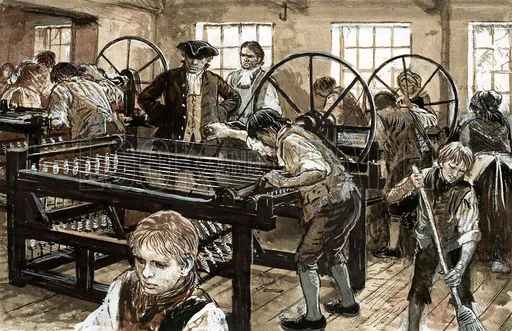The Industrial Revolution
People in the 19th and 20th centuries developed a suspicion of progress that stays with many of us today. This suspicion was largely focussed on the technological advances that are collectively referred to as The Industrial Revolution. From the 1700s on, advances in scientific knowledge and engineering know-how led to the increasing importance of machines in human existence. The age of machines has been a decisive era in human technology, and one that continues today.
With the success of the machines came a tendency in the Western world to think of all things – including the universe, nature, and human beings themselves – as "machines" of a sort, and for many people this mechanistic view of the world became a replacement for the religious and organic attitudes toward life that had come before. Medieval people throughout Europe conceived the world as an enchanted place created and ruled by God; indigenous people have often seen nature as a place imbued with intangible spirit; modern Westerners are more likely to think of nature as a complicated machine, one that can be understood, engineered, repaired, or modified. One that can be used and exploited and controlled.
From the start there has been anxiety over the machines and the mechanistic view of the world. Those who want to believe that human existence is special, important, and valuable in itself have questioned the wisdom as well as the accuracy of seeing ourselves and our world as machine-like. They worry about the consequences both of treating humans as a sort of machine, and also the effect that spending so much time with the machines themselves has on us. How does our reliance on machines change who we think we are, how we live, and how we think? This week we will take a closer look at the Industrial Revolution and the radical changes it brought about in one particular aspect of human life: work.
